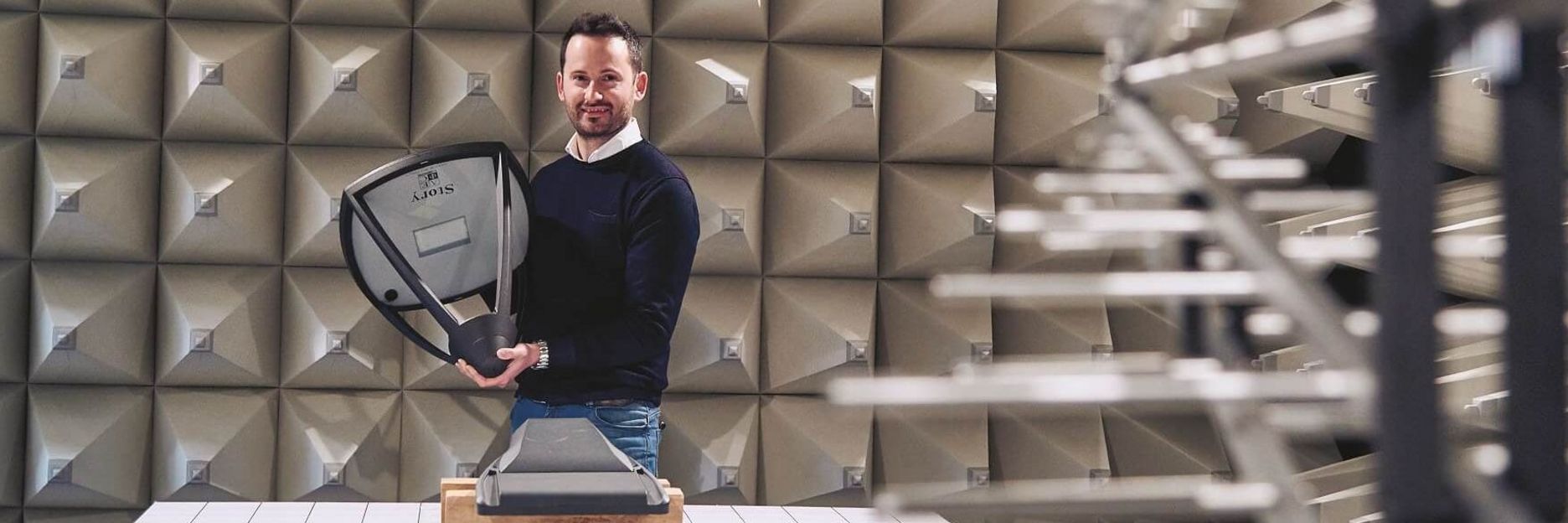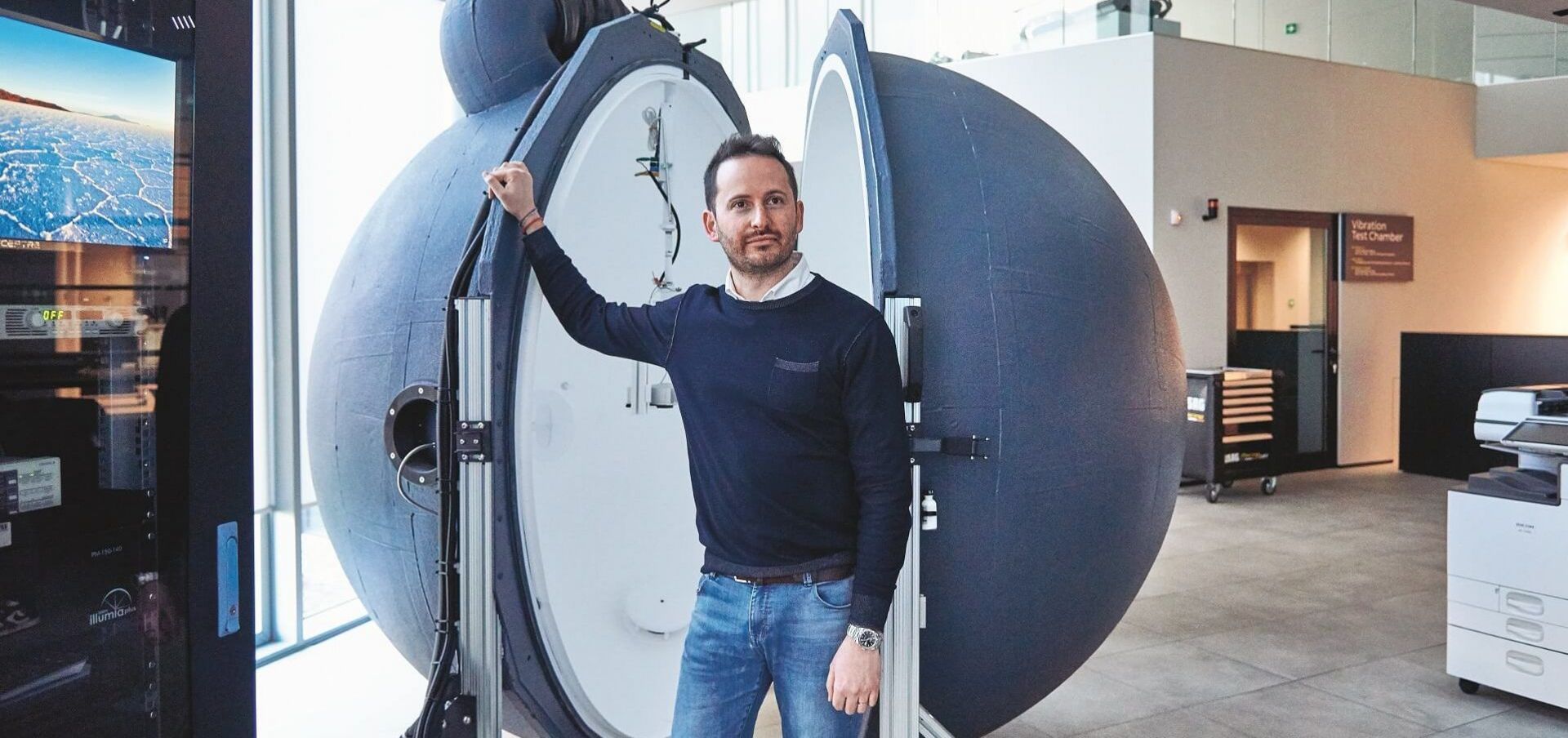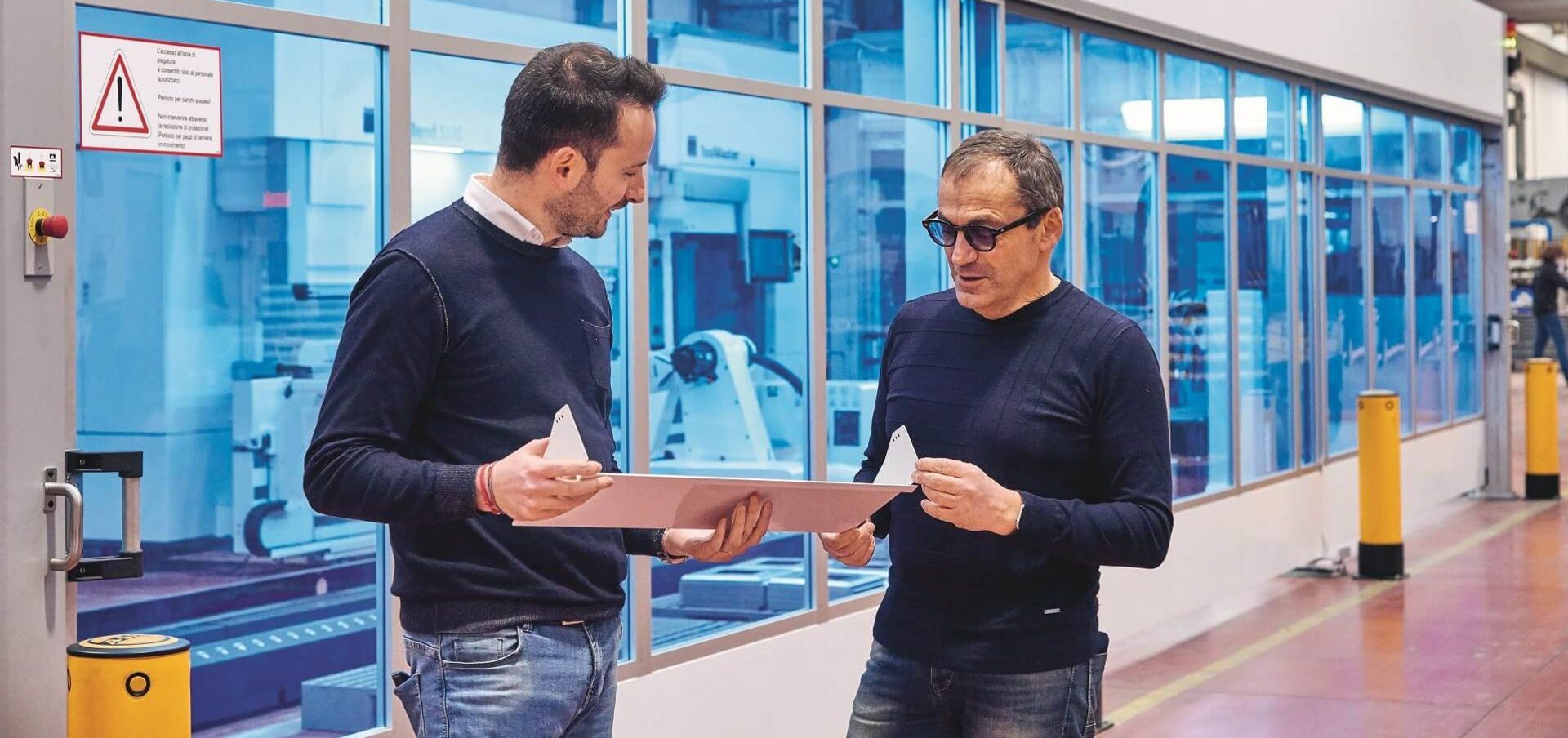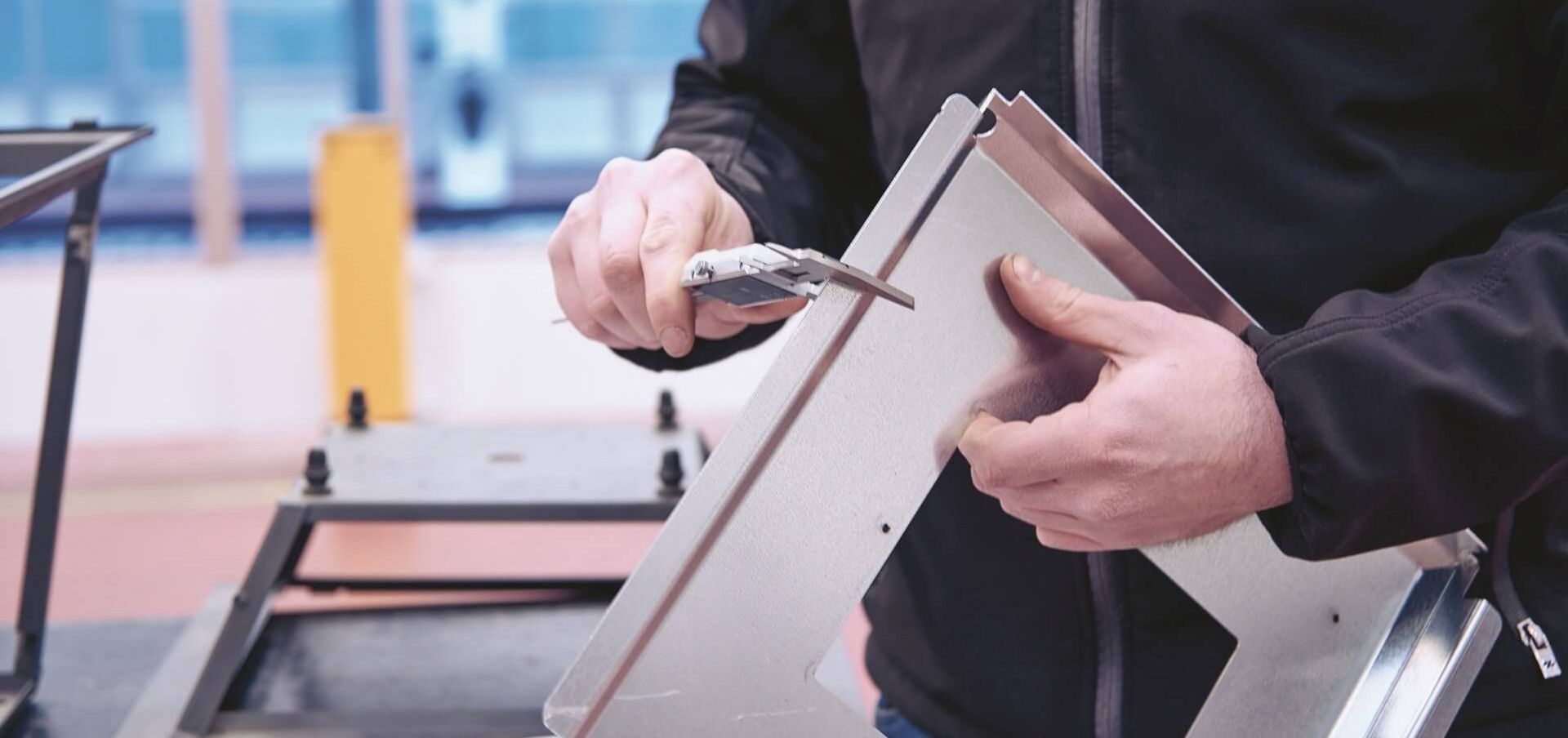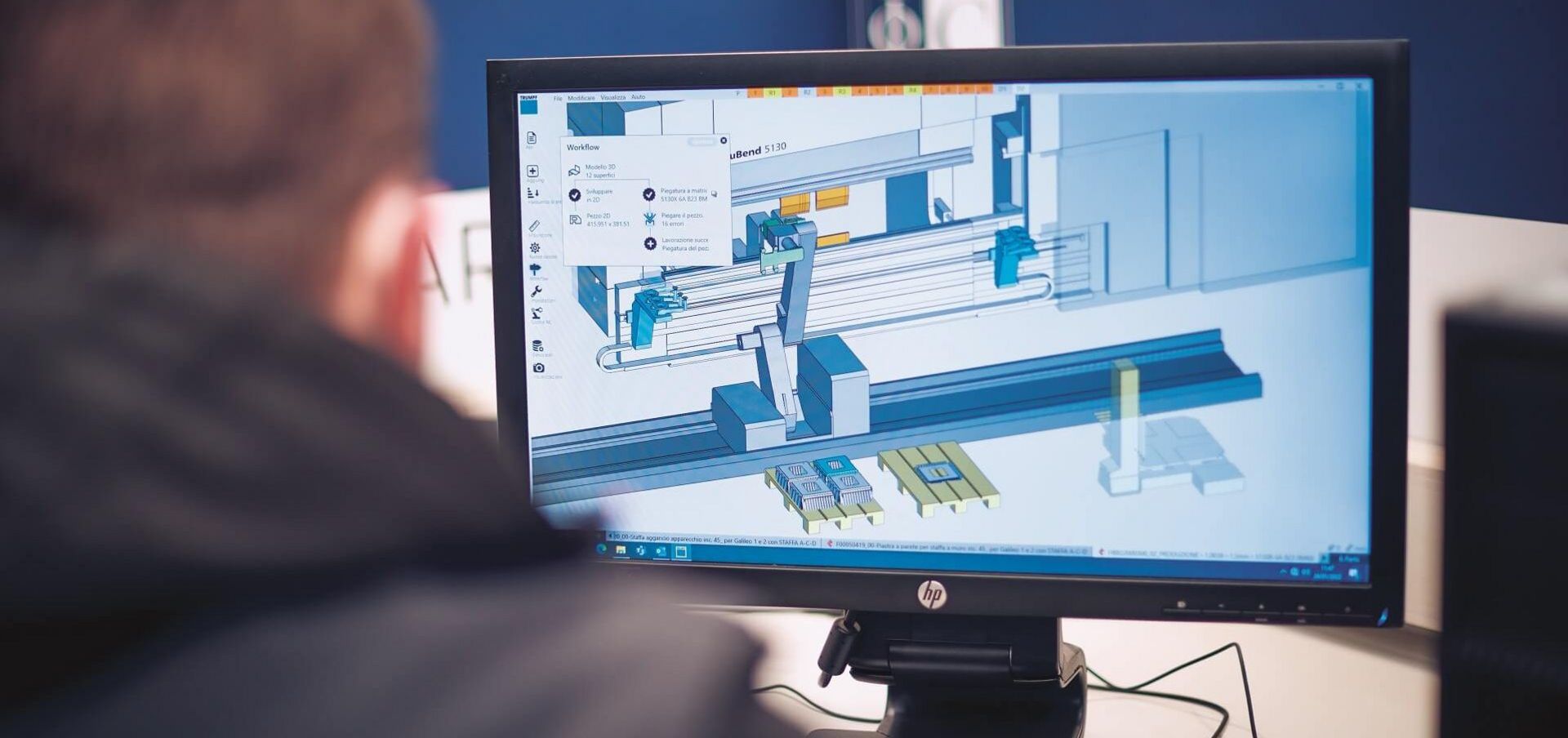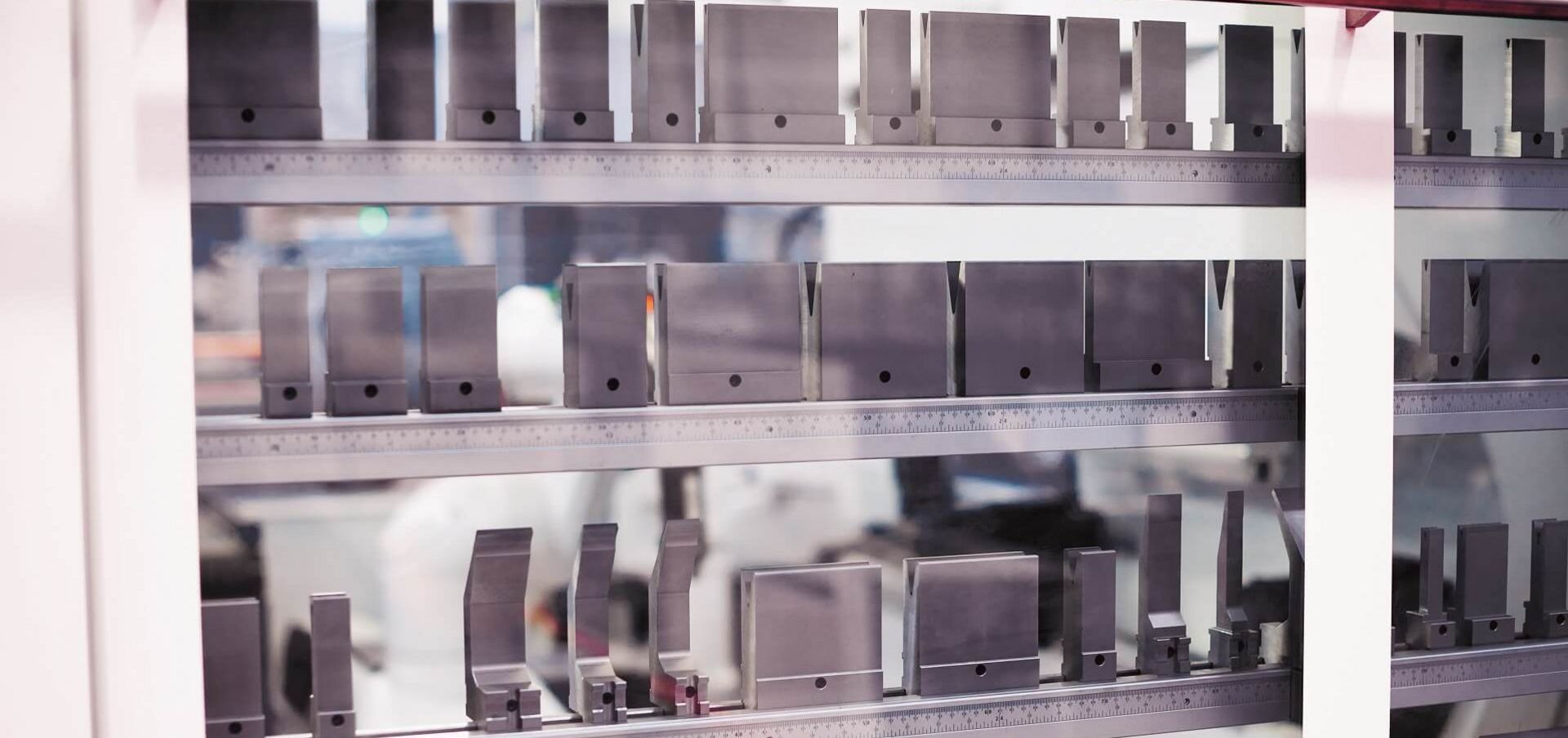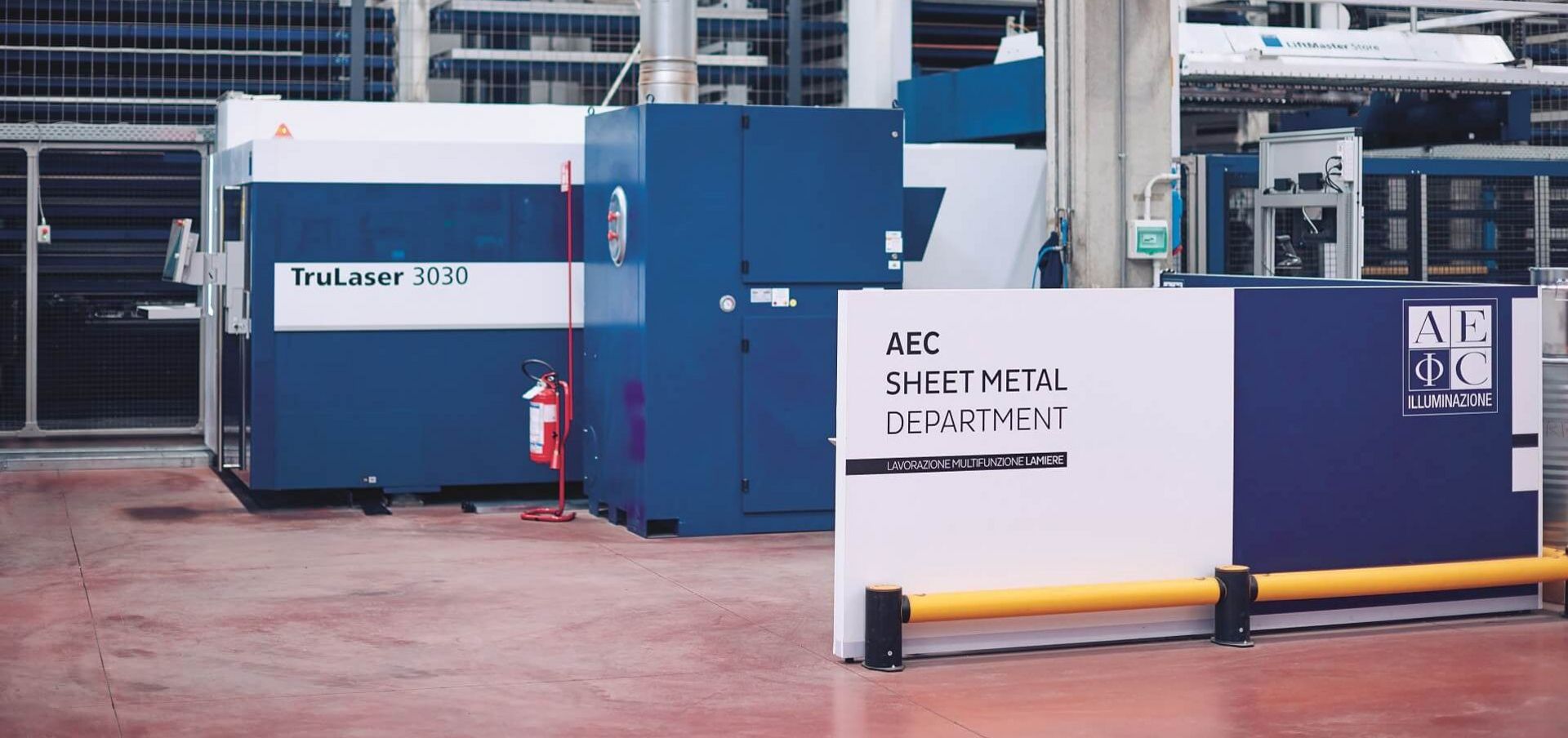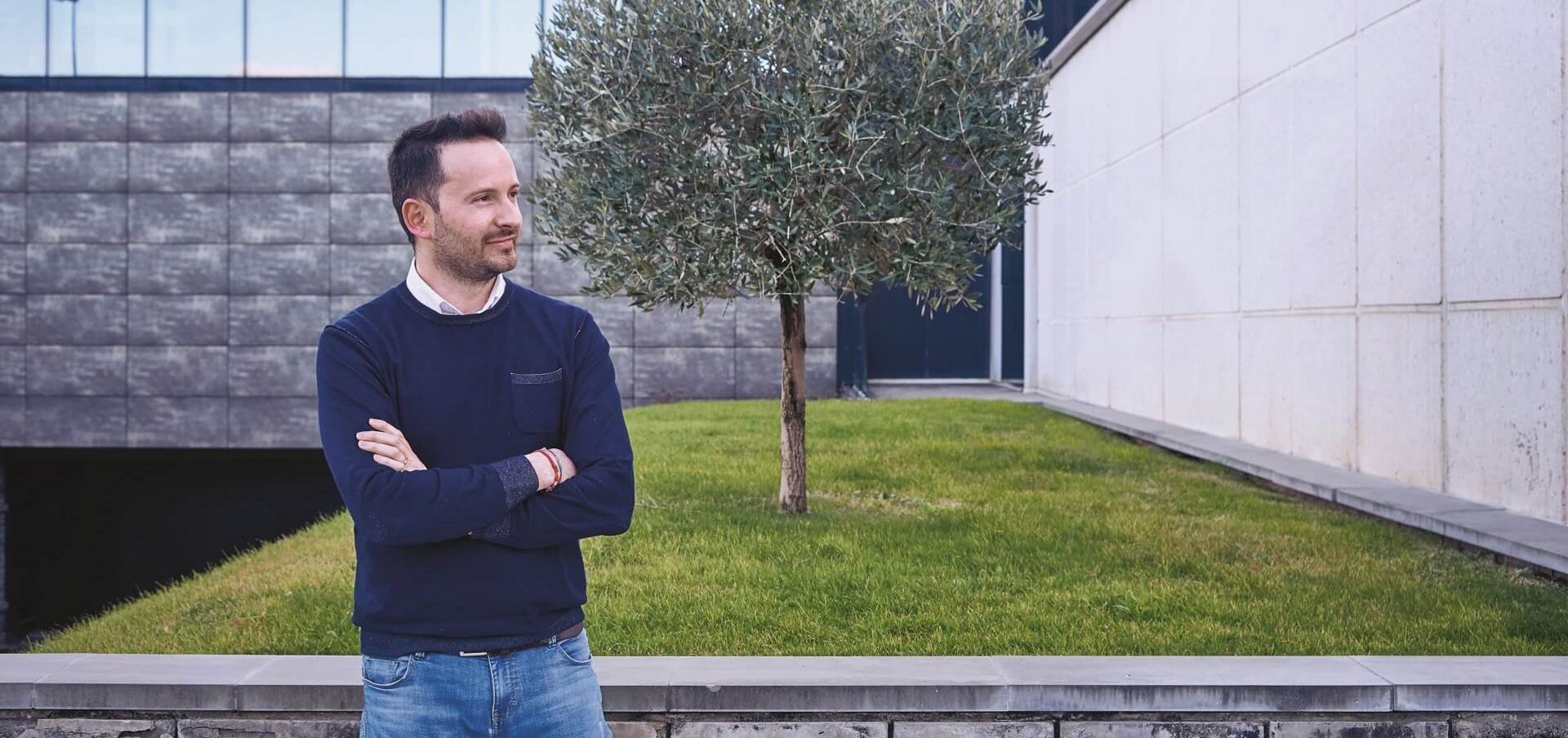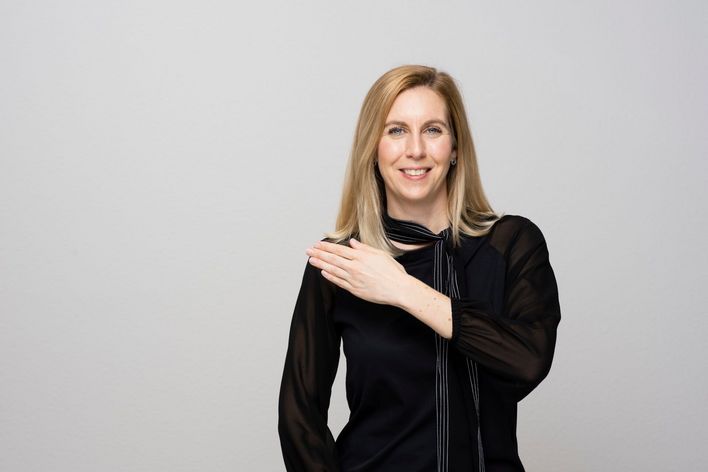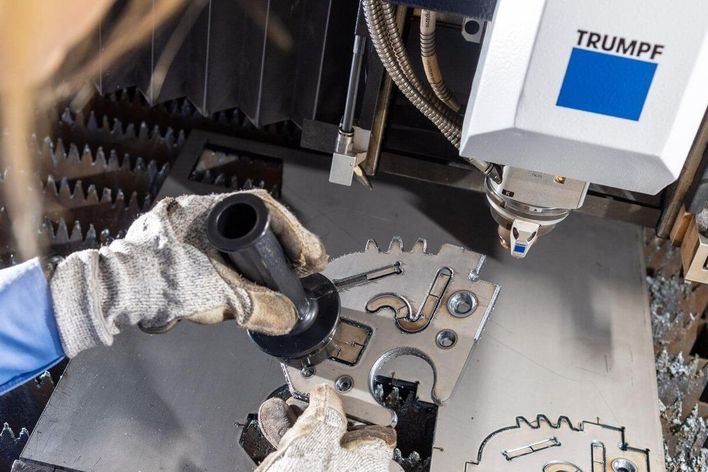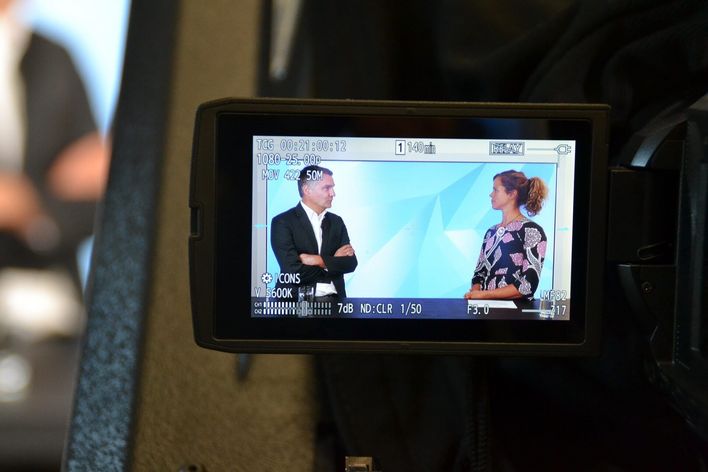Sometimes disaster also spells opportunity – and that was certainly true of the devastating floods that hit Florence in November 1966. The center of the city was severely damaged by mud and silt, so the municipal authorities commissioned the company AEC Illuminazione to reconstruct the city’s lighting fixtures. “We furnished the entire center of Florence with decorative candelabra virtually overnight. Producing those kinds of luminaires in bulk was quite a challenge back then!” says Giacomo Bianchi, operation manager at AEC since 2020. This turned out to be the springboard to success for AEC Illuminazione, with other Italian cities suddenly queuing up to acquire their own cast-iron lighting fixtures from Subbiano in Tuscany.
Fast, bright and beautiful
AEC seldom works with cast iron nowadays. Its customers are more interested in simple yet sophisticated designs made of aluminum and stainless steel. Founded in 1957, the family-owned company is one of the world’s most successful suppliers of public outdoor lighting. Its extensive range of products includes beautifully designed, energy-efficient and sustainable lighting concepts for road tunnels, bridges, underpasses, cities and stadiums.
Faster with automation
But looks alone are not enough: “We’ve definitely built a reputation for exceptional design and outstanding quality. But success today depends just as much on being able to get your products to market quickly,” says Bianchi. To meet that challenge, the company began making major investments in production automation back in 2006. That was when AEC laid the foundations of its close partnership with TRUMPF. Its first acquisition was a TruLaser 3030 fiber 2D laser-cutting machine, and this was soon joined by a TruMatic 1000 for punching and cutting jobs and two manual bending machines. The new machines greatly accelerated the manufacturing process and, in 2017, AEC Illuminazione decided to go one step further by replacing the old bending cells with new automated ones. “Sticking with TRUMPF was the obvious choice. We were satisfied with the machines we had, so why would we switch to a different manufacturer?” says Bianchi.
Aluminum, steel and light
AEC chose a TruBend Cell 7000 and the somewhat larger TruBend Cell 5000. “Making our company as vertically integrated as possible is a core part of our corporate philosophy,” says Bianchi. “It’s about bringing as many production steps as possible in-house. This reduces our dependence on suppliers, gives us full control over quality, and enables shorter delivery times. The two bending cells have made us even more self-sufficient when it comes to meeting our customers’ needs.” AEC Illuminazione also appreciated the high productivity and outstanding processing quality of the TRUMPF machines, especially since the company primarily works with aluminum and stainless steel. Even though almost all its luminaires are suspended from posts or steel girders high up in the air, it refuses to tolerate even the slight scratch on any of its housings. “We supply designer products – and that means top-quality workmanship, technical expertise and a beautiful design,” says Bianchi.
Sports arenas and tunnels
AEC Illuminazione regularly demonstrates its technical prowess through innovative developments such as its T-LED 3 tunnel lighting, which floods the darkness with energy-efficient light in a tunnel in Oslo, Norway. “Just like all our other luminaires, this model features high-performance reflectors made from ultra-pure aluminum. Aluminum offers optimal protection against corrosion, especially in tunnels where the material is exposed to high humidity and contamination,” says Bianchi. “We also use this type of reflector in stadium lighting, most recently at the Alberto Picco stadium in La Spezia in northern Italy.”
Managing production peaks
To produce the luminaires’ stainless-steel housings and sturdy mounting frames, AEC cuts and marks the parts with a laser before bending them into shape. “Until recently, we had to send the parts to a different company for bending. But purchasing our two bending cells means we can now do it in-house,” says Bianchi happily. The TruBend Cell 7000 mainly tackles smaller parts with widths of up to ten centimeters as well as a wide variety of mounting parts. “We produce around half a million products a year, each of which features two or three mounting fixtures. That adds up to a lot of work!” says Bianchi. His initial plan was to use the TruBend Cell 5000 primarily for bending larger housings and mounting devices, but fortunately he also had the foresight to equip the large bending cell with the necessary tools to enable him to shift parts from the TruBend Cell 7000 to the TruBend Cell 5000 whenever capacity gets tight. “Being able to absorb production peaks by combining the two machines is a great help, and this whole set-up meets our strategic goals perfectly. We now have a rapid solution for fabricating even more parts in-house at a consistent level of quality,” he says enthusiastically.
Smart connectivity, rapid feedback
The two bending cells are part of a comprehensive plan to restructure AEC’s production processes. Bianchi was therefore keen for TRUMPF to equip the machines with the interfaces required to connect them to its manufacturing execution system (MES), which the company installed in 2021. “It’s great to have fast machines and highly efficient automation components, and they certainly boost our productivity. But that alone is no guarantee of shorter throughput times and on-time delivery,” he says. The decision to carry out so many of the steps in-house poses its own challenges, because the resulting production processes are highly complex. If something goes wrong in one of the production steps, it can quickly end up disrupting the entire manufacturing process. The worst-case scenario is then having pallets of finished parts sitting around in the aisles waiting to be processed. The way to avoid that is by maintaining a consistent flow of clear and transparent information. To achieve this, Bianchi has now connected up 85 percent of the company’s machines. The MES generates production schedules and ensures smooth operation of the manufacturing environment. The design engineers can send their CAD drawings straight to the machines, where the data is imported and turned into finished parts as and when they are needed. The MES also collects machine data and key metrics for quality monitoring, machine utilization and production status. “By connecting everything together, we’ve created a truly transparent production environment. Tailoring our production schedules to the needs of our employees and machines helps to shorten throughput times and improve on-time delivery over the long-term,” says Bianchi.
Curious to find new approaches
Keen to take things to the next level, Bianchi put together a team whose mission was to identify and unleash even more optimization potential. When the team started work two years ago, it consisted of three ambitious young engineers. Today, it has 18 enthusiastic and open-minded members who apply their boundless curiosity to developing optimization strategies for logistics, supply chains and cost-efficient business practices. “We actually benefit from the fact that AEC Illuminazione has such flat hierarchies,” says Bianchi. “If you’re serious about questioning your existing processes and potentially turning them on their head, you need to have everyone acting in unison. It’s important that managers are willing to trust their staff and quickly sign off on the necessary capital investments, especially if your company has a long-term focus and the improvements might not be immediately noticeable. It’s usually easier to do that in family-owned companies than in large corporations.” Bianchi’s ongoing change process has put the company on target to achieve its smart factory goals. He aims to continue down this path by making sure every single one of his machines gets connected over the next 12 months. He will also be purchasing new machines to make the company even more vertically integrated, creating space for new manufacturing processes by expanding the Subbiano site. But, despite all this upheaval, AEC Illuminazione will always remain firmly rooted in the tradition of superb Italian design.

